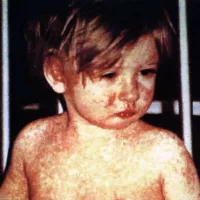Madagascar is an island country in the Indian Ocean, located off the southeastern coast of Africa. It's the fourth-largest island globally and the 46th-largest country. Its territory includes the main island of Madagascar and several smaller islands. The capital and largest city is Antananarivo.
1900: Madagascar Population
In 1900, the population of Madagascar was 2.2 million.
1902: End of French Campaign Against Menabe
In 1902, the French campaign against Menabe ended, following the Ambiky massacre.
1904: Antandroy and Mahafaly Yield
In 1904, the Antandroy and Mahafaly yielded to colonial rule after resisting.
1905: Malagasikara
In 1905, Charles Basset noted that Malagasikara was the name used by natives for the island, emphasizing their identity as Malagasy.
1927: Major Demonstrations in Antananarivo
In 1927, major demonstrations were organized in Antananarivo, led by communist activist François Vittori.
1939: Dissolution of Organizations
In 1939, all organizations were dissolved by the colonial administration, which opted for the Vichy regime.
1947: MDRM Accused of Insurrection
In 1947, the MDRM was accused by the colonial regime of being the cause of the insurrection and was violently repressed.
1947: Malagasy Uprising
In 1947, the Malagasy Uprising took place, galvanizing the independence movement.
1956: Establishment of Reformed Institutions
In 1956, France established reformed institutions in Madagascar under the Loi Cadre, moving the country toward independence.
October 1958: Proclamation of the Malagasy Republic
On October 14, 1958, the Malagasy Republic was proclaimed as an autonomous state within the French Community.
1958: First national Constitution
In 1958, in the first national Constitution of Madagascar, Malagasy and French were named the official languages of the Malagasy Republic.
1958: European Population
In 1958, the number of Europeans in Madagascar was 68,430.
1959: Adoption of a Constitution
In 1959, Madagascar adopted a constitution, marking a step towards full independence.
June 1960: Independence from France
Madagascar gained its independence on June 26, 1960.
June 1960: Full Independence
On June 26, 1960, Madagascar achieved full independence.
September 1960: Membership in the United Nations
Madagascar became a member state of the United Nations on September 20, 1960, shortly after gaining its independence.
1960: Independence from France
In 1960, Madagascar gained independence from France, marking a significant turning point in its history.
1960: Restoration of political independence
In 1960, Madagascar restored the political independence and sovereignty of the Malagasy armed forces with independence from France.
1960: First Republic
In 1960, the First Republic of Madagascar began under President Philibert Tsiranana, with strong ties to France.
1963: Founding member of the Organization of African Unity
Madagascar became a founding member of the Organization of African Unity in 1963.
1972: Overthrow of Tsiranana's Administration
In 1972, farmer and student protests led to the overthrow of President Tsiranana's administration due to resentment over neo-colonial arrangements.
1973: Economic Pressures Stemming from Oil Crisis
In 1973, economic pressures stemming from the oil crisis contributed to the collapse of Madagascar's economy.
1975: Ramanantsoa Steps Down; Ratsimandrava Assassinated
In 1975, Gabriel Ramanantsoa stepped down, and Colonel Richard Ratsimandrava was assassinated six days into his tenure.
1975: Post-independence census
In 1975, Madagascar carried out one of only two general censuses carried out after independence.
1975: Ratsiraka remained in power
In 1975, Ratsiraka remained in power.
1976: Institution of mandatory national service
In 1976, Admiral Didier Ratsiraka instituted mandatory national armed or civil service for all young citizens.
1976: Exodus of Comorans
In 1976, there was an exodus of Comorans in Madagascar, following anti-Comoran riots in Mahajanga.
1979: Madagascar's Bankruptcy
By 1979, Madagascar had become completely bankrupt, leading to the acceptance of conditions from international financial institutions.
1990: Fertility and maternal mortality rate
In 1990, the fertility rate in Madagascar was 6.3 children per woman and the maternal mortality rate was 484.4 per 100,000 births.
1991: End of mandatory national service
In 1991, mandatory national armed or civil service was ended.
1991: Shooting of Protesters
In 1991, presidential guards opened fire on unarmed protesters during a rally, marking a critical point in Ratsiraka's declining popularity.
1992: Presidential Elections and Inauguration of Third Republic
In 1992, Albert Zafy won the presidential elections and inaugurated the Third Republic.
1992: Constitutional Democracy
In 1992, Madagascar was governed as a constitutional democracy, representing a major shift in its governance structure.
1992: Zafy's presidency began
In 1992, Zafy's brief presidency began.
1993: National census religion adherence
According to the most recent national census completed in 1993, a majority of Madagascar's population (52%) adhered to Indigenous beliefs, with Christianity the largest single religion at 41%, followed by Islam at 7%.
1993: Zafy Elected President
In 1993, Albert Zafy served as president.
1993: Post-independence census
In 1993, Madagascar carried out one of only two general censuses carried out after independence.
1993: End of the Second Republic
In 1993, the Marxist–Leninist Second Republic, under Vice Admiral Didier Ratsiraka, came to an end.
1996: Impeachment of Zafy
In 1996, President Zafy was impeached, leading to an interim presidency.
1996: Zafy's presidency ended
In 1996, Zafy's brief presidency ended.
1996: Increased Educational Access
In 1996, educational access increased, which led to doubled enrollment rates by 2006.
2000: Lemur Species Described
Between 2000 and 2008, 39 species and subspecies of lemur were described by zoologists.
2000: Timber collection banned
In 2000, then-President Ravalomanana banned the collection of small quantities of precious timber from national parks.
2001: Sapphire discovery near Ilakaka
As of 2001, Madagascar provided half of the world's supply of sapphires, which were discovered near Ilakaka in the late 1990s.
2001: Military neutrality during political crisis
During the protracted standoff between incumbent Ratsiraka and challenger Ravalomanana in the disputed 2001 presidential elections, the Malagasy military remained largely neutral.
2001: Post-election standoff
Following the 2001 presidential elections, the eight-month standoff between incumbent Ratsiraka and challenger Ravalomanana cost Madagascar millions of dollars.
2001: Dispute over presidential election results
In 2001, Madagascar experienced a dispute over the results of the presidential election.
2001: Ratsiraka remained in power
In 2001, Ratsiraka remained in power.
2001: Contested Presidential Elections
In 2001, contested presidential elections led to a standoff between supporters of Marc Ravalomanana and Ratsiraka.
2002: Standoff After Elections
In 2002, a seven-month standoff occurred between supporters of Ravalomanana and Ratsiraka due to the contested elections.
2002: Education Prioritized
In 2002, under the Ravalomanana administration, education was prioritized and made free and compulsory for children aged 6 to 13.
2002: Dissolution of the Organization of African Unity
The Organization of African Unity, of which Madagascar was a founding member, was dissolved in 2002 and replaced by the African Union.
May 2003: Formation of Madagascar-US Business Council
In May 2003, the Madagascar-US Business Council was formed as a collaboration between the US Agency for International Development and Malagasy artisan producers to support the export of local handicrafts to foreign markets.
July 2003: Rejoining the African Union
Madagascar rejoined the African Union in July 2003, after a 14-month hiatus due to a dispute over the results of the 2001 presidential election.
2003: Announcement of the Durban Vision
In 2003, Ravalomanana announced the Durban Vision, an initiative to more than triple the island's protected natural areas to over 60,000 km or 10% of Madagascar's land surface.
March 2004: Cyclone Gafilo
In March 2004, Cyclone Gafilo, the strongest cyclone ever recorded to hit Madagascar, caused significant damage and loss of life.
2004: Creation of BIANCO
In 2004, Ravalomanana created BIANCO, an anti-corruption bureau, which resulted in reduced corruption among Antananarivo's lower-level bureaucrats.
2006: Doubled Enrollment Rates
By 2006, enrollment rates had more than doubled since 1996 due to increased access to education.
2007: Rainforests of the Atsinanana declared a world heritage site
In 2007, six of the national parks—Marojejy, Masoala, Ranomafana, Zahamena, Andohahela, and Andringitra—were declared a joint world heritage site under the name Rainforests of the Atsinanana.
2007: Constitution of 2007
The Constitution of 2007 recognized three official languages: Malagasy, French, and English.
2008: Tourist Visited
An estimated 365,000 tourists visited Madagascar in 2008.
2008: Lemur Species Described
Between 2000 and 2008, 39 species and subspecies of lemur were described by zoologists.
2008: Government spending on health
Fifteen percent of government spending was directed toward the health sector in Madagascar in 2008.
2008: Construction of Ehoala port
In 2008, Madagascar's newest port at Ehoala was constructed and privately managed by Rio Tinto.
2008: UNESCO Intangible Cultural Heritage List Inscription
In 2008, the decorative and functional woodworking traditions of the Zafimaniry people of the Central Highlands were inscribed on UNESCO's Intangible Cultural Heritage List.
2008: Maternal mortality rate
In 2008, the maternal mortality rate in Madagascar was 373.1 per 100,000 births.
January 2009: Re-authorization of timber collection
In January 2009, the collection of small quantities of precious timber from national parks, previously banned by President Ravalomanana, was re-authorized and significantly increased under the Rajoelina administration to generate state revenue following cuts in donor support after Ravalomanana's removal.
March 2009: Suspension from the African Union
In March 2009, Madagascar was suspended by the African Union following the unconstitutional transfer of executive power to Rajoelina.
March 2009: Ravalomanana Pushed From Power
In March 2009, Ravalomanana was pushed from power in what was widely condemned as a coup d'état, and Rajoelina was declared president of the High Transitional Authority.
2009: Access to water and electricity services
As of 2009, only 6.8% of Madagascar's fokontany had access to water provided by Jirama and 9.5% had access to its electricity services.
2009: Impact of budget cuts on police force
Budget cuts since 2009 had a severe impact on the national police force, leading to an increase in criminal activity.
2009: FIBA Africa Championship for Women
In 2009, Antananarivo hosted the FIBA Africa Championship for Women.
2009: Exports form 28% of GDP
In 2009, Exports formed 28% of Madagascar's GDP. Most of the country's export revenue is derived from the textiles industry, fish and shellfish, vanilla, cloves, and other foodstuffs.
2009: Political Crisis and Military Coup
In 2009, Madagascar experienced a political crisis and military coup, which led to a protracted transition towards a new republic.
2009: Army segment defects to Rajoelina
In 2009, a segment of the army defected to the side of Rajoelina in support of his attempt to force President Ravalomanana from power.
2009: Malagasy fertility rate and adult life expectancy
In 2009, the Malagasy fertility rate was 4.6 children per woman, and adult life expectancy was 63 years for men and 67 years for women.
2009: Violent protests led by Rajoelina
In early 2009, a series of violent protests led by Andry Rajoelina against Ravalomanana resulted in more than 170 deaths.
2009: Increased media censorship accusations
Since 2009, accusations of media censorship have increased in Madagascar because of alleged intensification of restrictions on political criticism.
2009: Exploitation of natural resources
Since 2009, the exploitation of natural resources had dire consequences for the island's wildlife.
2010: Medical professionals and hospital beds in Madagascar
In 2010, Madagascar had a total of 3,150 doctors, 5,661 nurses, 385 community health workers, 175 pharmacists, and 57 dentists for a population of 22 million, and an average of three hospital beds per 10,000 people.
2010: Road and railway infrastructure statistics
In 2010, Madagascar had approximately 7,617 km of paved roads and 854 km of railways and 432 km of navigable waterways.
2010: Adoption of New Constitution
In 2010, a new constitution was adopted by referendum, establishing a Fourth Republic.
2010: End of the Third Republic
In 2010, the Third Republic ended.
2010: Maternal mortality rate
In 2010, the maternal mortality rate in Madagascar was 440 per 100,000 births.
2010: Decline in Tourism
In 2010, the tourism sector declined during the political crisis with only 180,000 tourists visiting.
2010: Constitution of 2010
The Constitution of 2010, adopted following a constitutional referendum, recognized only Malagasy and French as official languages.
December 2011: Estimated Internet access in Madagascar
In December 2011, an estimated 352,000 residents of Madagascar had access to the Internet from home or in one of the nation's many Internet cafés.
2011: Health spending contributions
As of 2011, approximately 70% of spending on health in Madagascar was contributed by the government and 30% by international donors and other private sources.
2011: State-protected areas
As of 2011, areas protected by the state included five Strict Nature Reserves, 21 Wildlife Reserves, and 21 National Parks.
2011: Average growth rate
During 2011, the country's average growth rate was 2.6%.
2011: Scouting Membership
In 2011, membership in Scouting in Madagascar was estimated at 14,905.
2011: Teen pregnancy and infant mortality rates
In 2011, teen pregnancy rates in Madagascar were 14.8% and the infant mortality rate was 41 per 1,000 births.
July 2012: Assessment of natural resource exploitation
A July 2012 assessment revealed that the exploitation of natural resources since 2009 had dire consequences for the island's wildlife. It found that 90% of lemur species were threatened with extinction.
2012: Lemur Species
As of 2012, there were officially 103 species and subspecies of the lemur.
2012: Growth in GDP per capita
The GDP per capita was growing since 2012.
2013: FIBA Africa Under-16 Championship
In 2013, Antananarivo hosted the FIBA Africa Under-16 Championship.
2013: Rajaonarimampianina declared winner of presidential election
In 2013, Hery Rajaonarimampianina was declared the winner of the presidential election.
January 2014: Restoration of Constitutional Governance
In January 2014, constitutional governance was restored in Madagascar, marking the beginning of its fourth republic.
2014: FIBA Africa Under-18 Championship
In 2014, Antananarivo hosted the FIBA Africa Under-18 Championship.
2014: Plague Outbreak
In 2014, Madagascar had outbreaks of the bubonic plague and pneumonic plague with 263 confirmed cases and 71 deaths.
2014: Public Expenditure on Education
In 2014, public expenditure on education reached 2.8% of GDP.
2014: Discovery of the Asian common toad
In 2014, the Asian common toad was discovered in Madagascar, prompting researchers to warn that it could devastate the country's unique wildlife due to its similarity to a toad species that harmed wildlife in Australia.
2015: FIBA Africa Under-16 Championship for Women
In 2015, Antananarivo hosted the FIBA Africa Under-16 Championship for Women.
2015: Tourism Statistics
In 2015, Madagascar had an increase of 20% in Tourism compared to 2016.
2015: Launch of Madagascar Country Programme
In 2015, the United Nations (UN) World Food Programme started the Madagascar Country Programme with the goals of long-term development and addressing food insecurity by providing meals for specific schools and developing national school feeding policies.
2015: GDP Estimate
Madagascar's GDP in 2015 was estimated at US$9.98 billion, with a per-capita GDP of $411.82.
2016: Formal conversion to Orthodox Judaism
In 2016, 121 members of the Malagasy Jewish community were formally converted to Orthodox Judaism.
2016: Increase in Tourism
In 2016, 293,000 tourists came to Madagascar, representing an increase of 20% compared to 2015.
2016: Expected growth rate
In 2016, the country's growth rate was expected to have reached 4.1%.
2016: Unemployment Rate
In 2016, unemployment was equal to 2.1% with a work force of 13.4 million.
January 2017: Police officers deployed in Haiti
As of January 2017, 34 police officers from Madagascar were deployed in Haiti as part of the United Nations Stabilization Mission in Haiti.
2017: Daily income threshold
As of 2025, poverty affected approximately 80% of Madagascar's population, based on a daily income threshold of $2.15 (2017 PPP).
2017: Top exports
In 2017 the top exports were vanilla (US$894 million), nickel metal (US$414 million), cloves (US$288 million), knitted sweaters (US$184 million, and cobalt (US$143 million).
2017: Plague Outbreak
In 2017, Madagascar had outbreaks of the bubonic plague and pneumonic plague with 2,575 cases and 221 deaths.
2017: Signing of the UN Treaty on the Prohibition of Nuclear Weapons
In 2017, Madagascar signed the UN Treaty on the Prohibition of Nuclear Weapons.
2017: Capital population
In 2017, the population of Antananarivo, the capital of Madagascar, was estimated at 1,391,433 inhabitants.
2018: Challenges to Development
In 2018, Madagascar was still a very poor country and structural brakes remained on its development.
2018: Undernourishment and hunger rates
In 2018, Madagascar's undernourishment and hunger rates were at 42%.
2018: Malagasy Presidential Election
In 2018, the first round of Malagasy's presidential election was held on November 7 and the second on December 10.
2018: Tourism Goal
The country had the goal of drawing 500,000 visitors in 2018.
January 2019: Rajoelina Declared Winner of Elections
In January 2019, the High Constitutional Court declared Rajoelina as the winner of the elections and the new president.
June 2019: Rajoelina Wins Parliamentary Elections
In June 2019, Rajoelina won an absolute majority of the seats of the National Assembly.
2019: Measles Outbreak
In 2019, Madagascar had a measles outbreak, resulting in 118,000 cases and 1,688 deaths.
2019: African Games Gold Medal
In 2019, Madagascar's national 3x3 basketball team won the gold medal at the African Games.
2020: Pew Research Center religion adherence
According to the Pew Research Center in 2020, 85% of Madagascar's population identified as Christian, just 4.5% exclusively practiced folk religions; Protestants comprise a plurality of Christians, followed by Catholics.
2020: Muslim Population
In 2020, Muslims constituted 2% of the population of Madagascar, and are largely concentrated in the northwestern provinces of Mahajanga and Antsiranana.
2021: Access to Clean Water
According to the NGO WaterAid, in 2021 approximately 12 million people lacked access to safe drinking water.
2021: Multidimensional Poverty
According to the United Nations Development Programme, 68.4% of the population was multidimensionally poor as of 2021.
2021: Famine
According to the United Nations, in 2021 more than one million people in southern Madagascar were struggling to get enough to eat, due to what could become the country's first famine caused by climate change.
2021: Madagascar Famine Begins
Mid-2021 marked the beginning of the 2021-2022 Madagascar famine, which caused widespread food insecurity due to a severe drought.
January 2022: Internet access growth in Madagascar
By January 2022, 22.3% of Madagascar's population (6.43 million people) had access to the Internet, mostly through mobile phones.
February 2022: Cyclone Batsirai
In February 2022, Cyclone Batsirai killed 121 people, weeks after Cyclone Ana killed 55 and displaced 130,000.
December 2022: Construction of Antananarivo-Toamasina Toll Highway Began
In December 2022, Construction of the Antananarivo–Toamasina toll highway, the country's first toll highway, began. The infrastructure project was expected to take four years to complete.
2022: Cost to Adapt to Climate Change
A 2022 analysis found that Madagascar would have to spend 15% of its GDP to adapt to climate change.
2022: Madagascar Famine
Mid-2021 marked the beginning of the 2021–2022 Madagascar famine, which, due to a severe drought, caused hundreds of thousands of people to face food insecurity and leaving over one million on the verge of famine.
November 2023: Re-election of Rajoelina
In November 2023, Rajoelina was re-elected to another term with 58.95% of the vote in the first round of the election amid controversy.
2023: Study on mammal species at risk of extinction
A 2023 study published in Nature Communications found that 120 of the 219 mammal species found only on Madagascar were threatened with extinction.
2023: Rural population with access to power
As of 2023, 11% of Madagascar's rural population had access to power.
2023: Rural access to all-season roads
As of 2023, the World Bank estimated that 17 million people in Madagascar's rural areas live more than 2 km away from an all-season road.
2023: Lychee exports growth
In 2023, high-value cash crops for export such as lychees experienced recent growth areas, with 18,000 tons sold abroad, of which 16,000 tons were exported to Europe.
2024: Population Estimate
In 2024, the population of Madagascar was estimated at 32 million, with an annual population growth rate of approximately 2.4%.
October 2025: Randrianirina Sworn in as President
On October 17, 2025, Colonel Michael Randrianirina was sworn in as Madagascar’s new president after a series of protests in 2025 culminating in his flight and impeachment with the military taking control of the country.
2025: Poverty Projection
As of 2025, poverty affected approximately 80% of Madagascar's population, based on a daily income threshold of $2.15 (2017 PPP), and nearly 1.94 million people were projected to experience high levels of acute food insecurity during the lean season.
2025: Military coup
In 2025, mass protests led to a military coup, resulting in the installation of Michael Randrianirina as president of an interim government.
2026: Launch of new passenger train service in Antananarivo
In early 2026, a new passenger train service was launched in Antananarivo, Madagascar, to ease traffic in the capital.
2038: Ehoala port comes under state control
Around 2038, Madagascar's Ehoala port, constructed in 2008, will come under state control upon completion of the company's mining project near Tôlanaro.
Mentioned in this timeline

Basketball is a team sport played on a rectangular court...
Africa is the second-largest and second-most populous continent comprising of...
Australia officially the Commonwealth of Australia encompasses the Australian mainland...

Measles also known as morbilli or rubeola is a highly...
France officially the French Republic is primarily located in Western...
The modern Olympic Games are a leading international sporting event...
Trending
11 minutes ago Ski Mountaineering to Debut at Milan-Cortina Winter Olympics in 2026.

1 hour ago Selena Gomez's Spiced-Plum Manicure and TikTok Clone Theory Spark Buzz

1 hour ago Kit Harington and Sophie Turner Gag After On-Screen Kiss in New Movie

1 hour ago Trump administration updates, Iran nuclear efforts, and White House controversies unfold.

1 hour ago Dario Amodei Highlights India's Central Role in Shaping AI's Future at AI Summit.

2 hours ago Yoon Suk Yeol, South Korean ex-president, receives life sentence for insurrection and martial law.
Popular

Jesse Jackson is an American civil rights activist politician and...
Randall Adam Fine is an American politician a Republican who...

Pam Bondi is an American attorney lobbyist and politician currently...

Barack Obama the th U S President - was the...

Martin Luther King Jr was a pivotal leader in the...

Ken Paxton is an American politician and lawyer serving as...